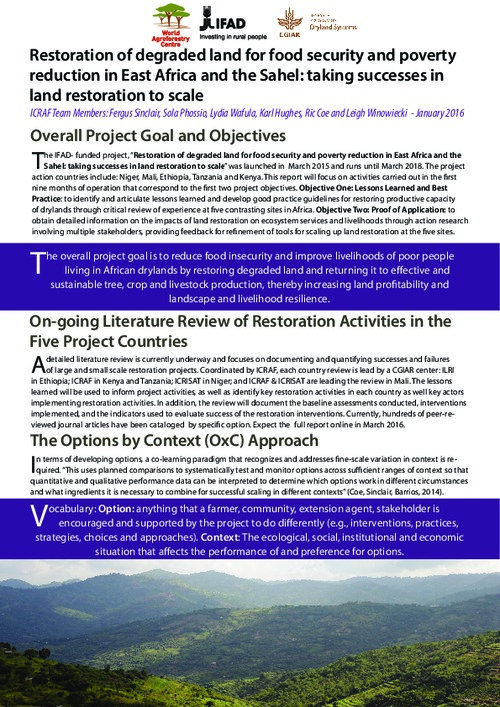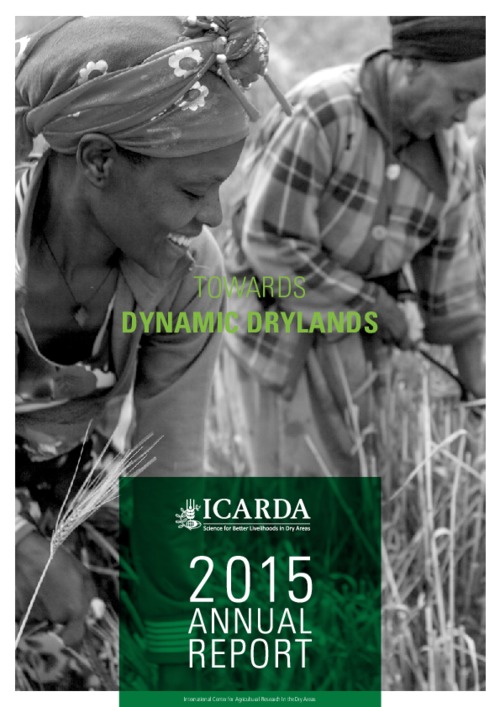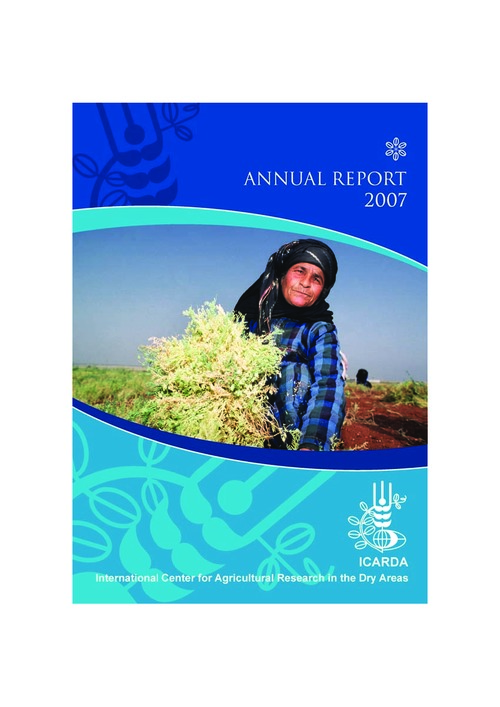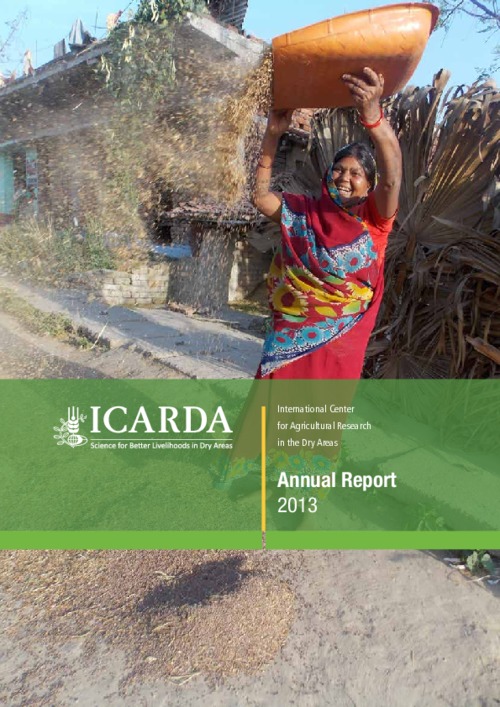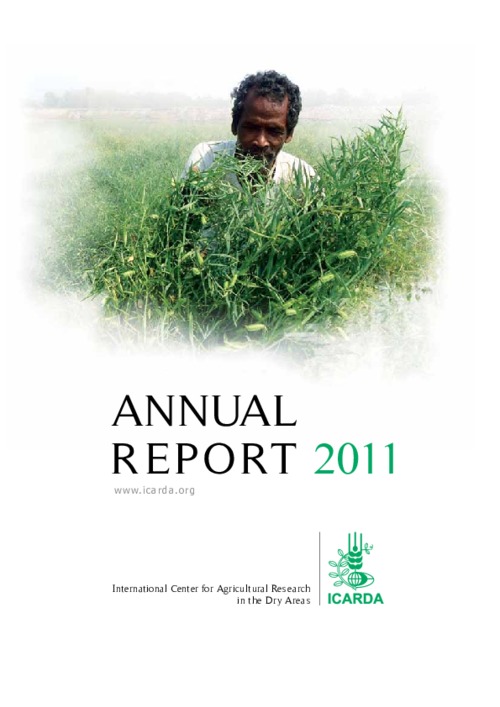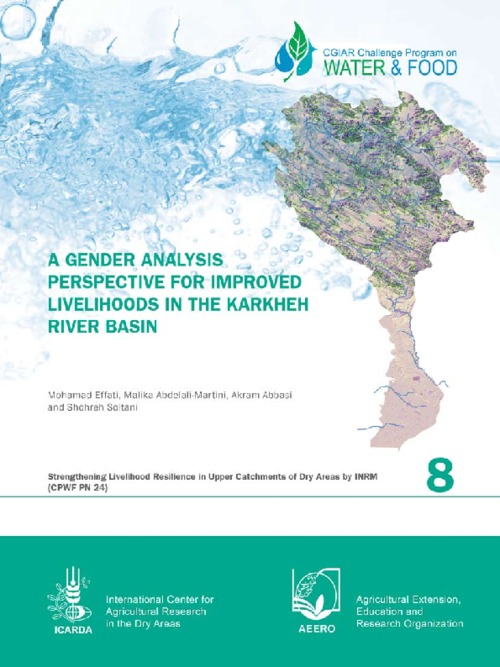Restoration of degraded land for food security and poverty reduction in East Africa and the Sahel: taking successes in land restoration to scale
The present document is a brief technical report highlighting activities relating to the options by context approach. The IFAD- funded project, “Restoration of degraded land for food security and poverty reduction in East Africa and the
Sahel: taking successes in land restoration to scale” was launched in March 2015 and runs until March 2018. The project
action countries include: Niger, Mali, Ethiopia, Tanzania and Kenya. This report will focus on activities carried out in the first

